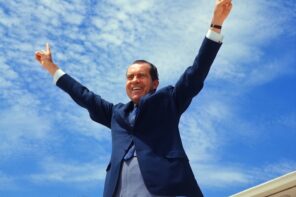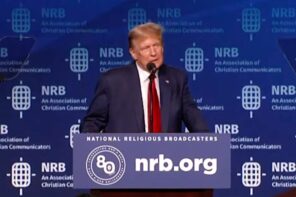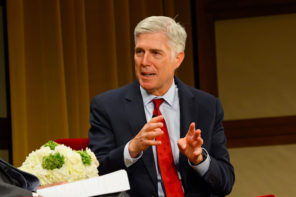In my previous post on the President’s Tucson speech, I noted the oddity of lionizing a nine-year-old child, when there were adults in this story who had heroically sacrificed their lives for friends and loved ones. I suggested that a certain Christian schizophrenia about the innocence or fallenness of children had something to do with that. And I suggested that tragedy was for adults.
And I hoped that in the State of the Union address, the President might find a way to speak adult-ly, to an adult audience, about some very adult problems and concerns.
Ira Chernus’ discussion of what he calls Obama’s “semi-Niebuhrianism” beautifully captures why the speech failed to meet that challenge. Reinhold Niebuhr knew a thing or two about tragedy, and at his best, he insisted that this nation take up its adult responsibilities in a large and complex and often dangerous world, that it put behind its naive and childish sense of its own innocence.
In other words, “Christian Realism” in a Niebuhrian key is a political theology for adults. The semi-Niebuhrian brand seems tailor-made for adolescence.
In fairness, one thing that made the President’s speech seem flatter than most was the altogether welcome, and altogether adult, decision by the leadership of the two main parties to weave themselves together, thereby working against the endless intrusion of partisan shouting and handclapping on two sides of the chamber that tended to double the length of such speeches in the past decades.
This was the very sort of thing that led Chief Justice Roberts to suggest last year in Alabama that Supreme Court justices had little place at such partisan affairs; his decision to attend the State of the Union address may have been, in part, a response to this most welcome gesture toward bipartsanship. It was telling, too, that the most partisan of our current justices (Alito, Scalia, and Thomas) chose to stay away.
Still, this decision did leave people in the audience wondering when, and if, to clap. The President’s joke about smoked salmon fell flat, since it took time to register that he was joking about his own government, since both sides were clearly caught wondering whether this was a joke aimed at them or against them, then decided very late to clap.
When the President noted that “our problems are bigger than party, and bigger than politics,” the line was similarly designed to capture that new mood of bipartisan compromise. It made good sense, and it made for a good line—though one might wish he’d said “bigger than partisan politics.” Politics, after all, is what we do to deliberate about such big problems.
The line was offered in the spirit of can-do American industriousness, the notion that when we put our minds to a thing, we achieve it beyond the wildest expectations of a witnessing world. Such a line is neither Niebuhrian, nor necessarily very realistic.
The vast majority of the President’s attention in this speech was focused on the economy, for obvious reasons. And he was trying to get back on message, with an evangel of hope.
That is why the single most memorable line, the one that crystallized the message of the entire address, was the following: “We need to out-innovate, out-educate, and out-build the world.”
And the proposed way to go about this was a suggestion torn directly out of the Reagan playbook: more investment in science and math.
It’s most curious, as a goal and as a solution. No mention of values. Not one word about justice. And that is what was most un-Niebuhrian about the entire address. There was no sense of tragedy in it, no sense of the necessary limits that come with growing up.




